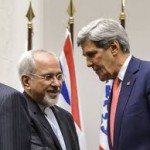 With a deal struck to lighten sanctions on Iran in exchange for access to and observation of the Iranian nuclear program, and a political resistance to entering another foreign entanglement in Syria, it appears the United States has entered into a new era on foreign policy.
With a deal struck to lighten sanctions on Iran in exchange for access to and observation of the Iranian nuclear program, and a political resistance to entering another foreign entanglement in Syria, it appears the United States has entered into a new era on foreign policy.
The truth is, that when it comes to the Middle East, relationships are tenuous and the ground ever-shifting. Such a dynamic is a natural cause for hesitancy to involve oneself in the region’s disputes. Syria represents an extraordinarily complex patchwork of alliances and feuds. Hezbollah, the predominant militant group in Lebanon, supports Syrian President Bashar al Assad and the government. Al Qaida has taken up arms in resistance to Syria’s regime.
And yet our hands-off approach with Syria has proved advantageous from the standpoint that we have not entangled ourselves in a drag-out conflict where sides are blurred and resources are squandered. In fact, the fighting between opposition forces and the Syrian government has resulted in steps towards the dismantling of Syria’s chemical weapons. The tragedy of 100,000 dead and the creation of nearly three million refugees was very nearly one that would have been shouldered by the U.S.
With uncertainty as to Egypt’s future, pressure on the Iran issue from the hawks in Israel, and an ongoing siphon of U.S. resources just to the east in Afghanistan, there is no question why the U.S. is playing its cards with caution.
And as far as the U.S. is concerned with Iran, frankly, the Iranian nuclear interim agreement represents the absolute best case scenario for the U.S. under current circumstances. A war with Iran would result in tragic levels of debt at the least, and a massive humanitarian tragedy at the most. Iran has emphatically stated it will never stop enriching uranium so, short of war and with no agreement, Iran would find a way to obtain a nuclear weapon. The U.S. has bargained for a higher vantage point in its relationship with Iran. While the deal might seem like a short-term failure given that Iran appears to have given up relatively little in exchange for $7 billion in sanctions relief, the truth is that the U.S. stands to gain a long-term position as one of the foreign overseers of Iran’s domestic nuclear program. If anything goes wrong in the interim, the United States along with its allies can impose even harsher sanctions (or even go to war if one wants to take it that far).
Israeli’s Prime Minister, Benjamin Netanyahu has not stifled any disagreement with the plan labeling the move as an “historic mistake.” And Israel’s concerns are valid. An Iran with nuclear military capabilities poses a threat to Israel’s security. But a war with Iran, over a program Iran agrees will be overseen by international observers for domestic production, would be premature to say the least – especially since the U.S. would be footing the cost.
All of this begs the question: What now is our nation’s role in the Middle East and in international affairs more broadly? While we are reducing our military presence in Europe we are only expanding its presence in the Asia-Pacific region. How are we to take into account the nearly one trillion dollars scheduled in Defense cuts over the next decade?
The answer may lie in the kind of wait-and-see diplomacy demonstrated by our exercise of restraint in Syria and the Iranian nuclear interim agreement. Certainly it makes sense when looking at the bill.
